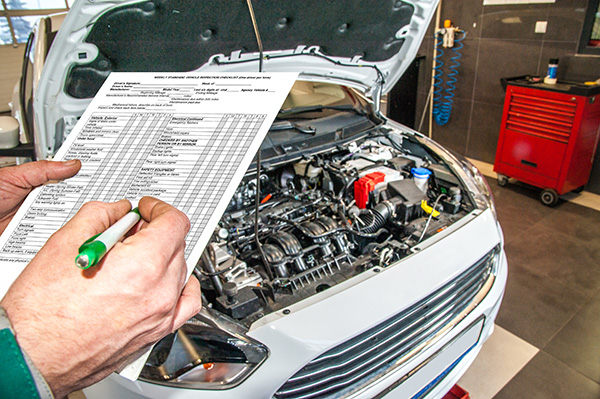
Planning a road trip is always exciting. The open road, scenic views, and the thrill of discovering new places make for unforgettable experiences. But before you hit the highway, ensuring your vehicle is in top shape is crucial to avoid unexpected breakdowns and keep your journey smooth and safe. Here are the seven most important checks you should do before embarking on your road trip.
1. Inspect Your Tires
Tires are your car's only contact with the road, so their condition is paramount for safety and efficiency. Start by checking the tire pressure. Under-inflated tires can lead to poor fuel economy and increased wear, while over-inflated tires can reduce traction. Use a tire pressure gauge to ensure all tires, including the spare, are inflated to the manufacturer's recommended levels.
Next, examine the tread depth. Worn-out tires can compromise handling and braking, especially in wet conditions. Insert a penny into the tire grooves with Lincoln's head upside down; if you can see the top of his head, it's time to replace the tires. Also, look for any signs of damage, such as cuts, punctures, or bulges.
2. Check Fluid Levels
Your car relies on various fluids to operate efficiently. Before your trip, make sure to check the following:
- Engine Oil:Ensure the oil level is within the recommended range. If it's time for an oil change, get it done before you leave.
- Coolant: Check the coolant level in the reservoir and top it off if needed. Proper coolant levels prevent the engine from overheating.
- Brake Fluid: Low brake fluid can affect braking performance. Check the level and top it up if necessary.
- Transmission Fluid: If your car has an automatic transmission, check the fluid level according to the manufacturer's instructions.
- Windshield Washer Fluid: Fill up the washer fluid reservoir to keep your windshield clean and ensure good visibility.
3. Test Your Brakes
Your brakes are critical for your safety on the road. If you've noticed any squeaking or grinding, or if the brake pedal feels soft or goes to the floor, it's time to have your brakes inspected. Even if everything seems fine, it's wise to have a professional check your brake pads, rotors, and brake fluid to ensure they're in good condition for the trip.
4. Examine Your Battery
A dead battery can quickly ruin your road trip. Inspect your battery for any signs of corrosion on the terminals, and ensure the connections are tight. If your battery is over three years old or you've had issues starting your car, consider having it tested or replaced before your journey. It's also a good idea to pack jumper cables just in case.
5. Check Your Lights
Properly functioning lights are essential for your safety and the safety of others on the road. Test all your lights, including headlights, brake lights, turn signals, and hazard lights. Replace any burnt-out bulbs and ensure your headlights are correctly aligned to provide the best visibility.
6. Inspect Your Belts and Hoses
Belts and hoses play vital roles in your engine's performance. Inspect the serpentine belt, timing belt, and hoses for any signs of wear, cracking, or fraying. A broken belt or leaking hose can lead to serious engine damage and leave you stranded. If you notice any issues, have them replaced before your trip.
7. Test Your HVAC System
Your Heating, Ventilation, and Air Conditioning (HVAC) system is crucial for comfort and safety, especially in extreme weather. Make sure the air conditioning is blowing cold air, the heater is working, and the defroster is functional. An efficient HVAC system ensures a comfortable and safe driving experience, no matter the weather conditions.
Ready for your next adventure? Visit 5 Star Auto Service today for a comprehensive pre-trip vehicle inspection and travel with peace of mind!